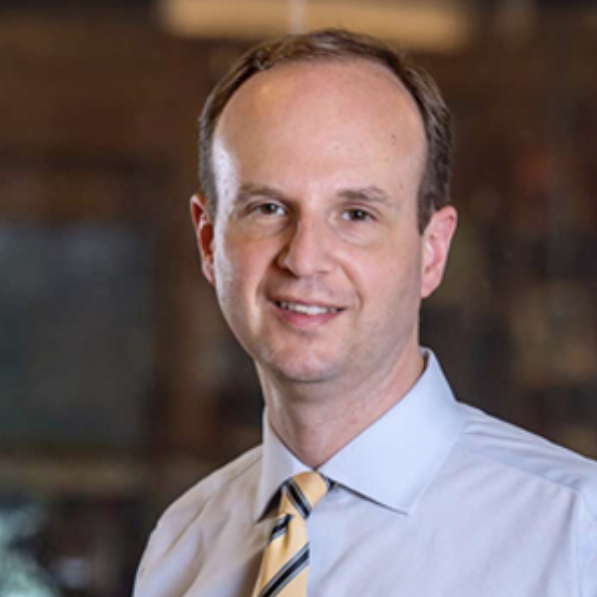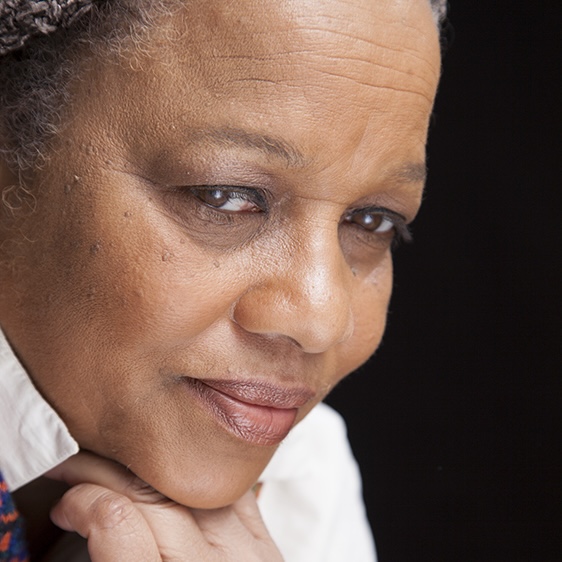Plenary Presentations



AI Tools in Humanistic and Social Research
Monday, May 6, 9–10:30 Pacific Time / 6–7:30 pm CET
Speaker: PETER LEONARD, Research Data Services, Stanford University
Discussants: SILVANA DI GREGORIO, Lumivero; TOM HOY, Stripe Partners
Get a foundational understanding of the growing capabilities (and limits!) of AI tools in humanistic research and multi-modal computational analysis.
We have all heard the drumbeat that “AI” systems like LLMs will have enormous implications for researchers and ethnographers. Products like ChatGPT promise a universal interface that may augment or replace human thought, and a growing number of LLM-driven tools promise faster and better insights. Meanwhile, it is challenging to assess the actual capabilities of these tools with respect to the range of data and analytical techniques we use to create multidimensional insights about social worlds.
In this talk, Peter Leonard, an expert in computational humanities who advises faculty across Stanford University on computational methods and data practices, will orient us to the nature of these tools and their the growing value and limits for research. We will explore the kind of information and collections previously isolated from data-mining practices that are now becoming computationally tractable, and new capabilities such as transcribing human speech, summarizing and analysing themes in transcriptions and other texts, identifying un-described images, and multi-modal analysis of complex cultural artefacts. Peter will also discuss concerns around mainstream commercial models that researchers should be aware of; alternative, open-source tools; and useful applications of large, small, and custom models. Following Peter’s presentation, discussants will explore specific examples and use cases.
Peter Leonard is the Assistant University Librarian for Research Data Services at Stanford University, where he leads teams supporting GIS, data acquisition & analysis, data curation, and AI inference and modeling. He previously served as the Director of the Digital Humanities Lab at Yale University Library and taught in the Department of Statistics and Data Science at Yale. He holds a PhD in Scandinavian Literature from the University of Washington in Seattle, served as a Fulbright Fellow at Uppsala University, and was an Aspen Ideas Festival Scholar.
Silvana di Gregorio, PhD is Product Research Director and Head of Qualitative Research at Lumivero, the developers of NVivo, a software program for qualitative and mixed methods research. She is a sociologist and former academic with a PhD in Social Policy from the London School of Economics. She has been training, consulting, and publishing about qualitative data analysis software since 1995. For 16 years she had her own training and consulting business, SdG Associates. She is author of Voice to Text: Automating Transcription and Using Web 2.0 tools for Qualitative Analysis, and co-author with Judith Davidson, Qualitative Research Design for Software Users and Qualitative Research and Technology: In the Midst of a Revolution, and co-author with Linda Gilbert and Kristi Jackson, Tools for Qualitative Analysis. She is part of the Product Team at Lumivero.
Tom Hoy is a Partner at Stripe Partners. He has spent 15 years advising some of the world’s leading organisations on strategy and innovation. Tom’s expertise lies in applying social science theory to unlock concrete business and product challenges. The frameworks and concepts developed by Tom’s teams guide the activity of clients including Apple, Google and Spotify. His work has been covered by the Financial Times and The Guardian. Prior to co-founding Stripe Partners, Tom was a leader in the social innovation field, growing a hackathon network in South London to several hundred members to address local causes. Tom holds a Masters in International Relations from the LSE.
A Relational Approach to (genAI) Product Impact
Wednesday, May 8, 4–5:30 pm Pacific Time / Thursday, May 9, 9–10:30 am AEST
Speaker: TERUKO MITSUHARA, Adobe
Discussants: ES BRAZIEL, Adobe; BEN HUTCHINSON, Google; YUKO OKUBO
AI product development is overwhelmingly framed as a problem of technical scale and muscle, and researchers are racing to onboard new work automations and best practices. But as many researchers know, there is more to solve with AI than enhancing technological capability. In this talk, Dr. Teruko Mitsuhara focuses on the impact we can have when we frame core challenges in genAI as relational problems, such as the atomization of content, lack of alignment across functional teams, or ethical problems around emergent technologies and the diverse communities who engage with them.
Dr. Mitsuhara begins her talk describing the linguistic anthropological expertise she brings to the processes of model development and large language models (LLMs), including the fact that that language and the definitions we ascribe to everything in our world are cultural, semiotic, embodied, relational, temporal, and ever changing. Then, she invites us to use the relational framework to address with concrete challenges such as: How can we connect the disparate array of assets, templates, and content to create more holistic approaches to data and model engineering? How can social scientists and UX researchers catalyze change in their teams and companies, particularly with stakeholders that aren’t as well versed on certain topics and perspectives? What are our ethical responsibilities, and what kind of impact are we responsible for? Dr. Mitsuhara will cover these questions and more and looks forward to the conversation with you all.
Dr. Teruko Mitsuhara is a linguistic anthropologist and UX research manager at Adobe. Her research spans from religious utopias in India and the US to design research in the technology industry. She’s a cat lady and thought you should know that.
Driven by their background in cultural anthropology, Es Braziel uses research and strategy as a tool to build equity into product development processes and outcomes. They honed their craft conducting market strategy with clients including Google, Meta, PlayStation, and Snap, before working on responsible product innovation at Microsoft. Currently, they are a Staff Experience Researcher on the Product Equity team at Adobe, where they focus on expanding Adobe’s mission of “Creativity for all” through driving systems-level change and equitable research practices across the company.
Ben Hutchinson is a researcher, developer and thought leader on Responsible AI with experience doing inter-disciplinary research on how to make AI trustworthy, transparent, auditable, and accountable.
Yuko Okubo is a sociocultural anthropologist with experience in conducting UX research, design research, and ethnography in IT. Her academic research focused on exploring the concept of “multiculturalism” in a multiethnic school and neighborhood in Japan. She has applied her research skills to product development and design across various problem spaces, including education solutions, enterprise solutions, and communication. Most recently, she was a user researcher at Grammarly. She holds a PhD in Anthropology from the University of California, Berkeley.
Double Consciousness in Research and Design: Shifting toward Empowerment and Equity
Friday, May 10, 11–12:30 pm US Pacific Time / 8–9:30 pm CET
Speaker: MICHELE Y. WASHINGTON, Coforma
Discussants: FRANK ROMAGOSA, Independent Researcher; VICTOR UDOEWA, Service Design Lead, CDC
Explore how Double Consciousness can inform one’s self-perception as a researcher and designer and uncover ways to promote empowerment, equity, and healing.
Over a century after W.E.B. Du Bois developed the concept of double consciousness, this experience of “twoness” resonates, particularly for those who live and work across cultural boundaries. In this talk, transdisciplinarian Michele Washington will explore how double consciousness can inform one’s self-perception as a researcher and designer. Sharing examples in conversation with discussants, she will describe how examining our social and physical geographies through this lens can uncover ways to promote empowerment, equity, and healing.
Michele Y. Washington is a transdisciplinary designer, researcher, writer, and academic. Her projects span civic design, cultural spaces, non-profit organizations, publishing, and archival collections. Currently, Michele works for Coforma, a civic design firm, where she focuses on health-based projects. She has also worked on other projects such as A Long Walk Home, Norman Teague Design, City as Living Lab, Leadership Summit, Cox Matthews & Associates, Chronicle of Higher Education, the Romare Bearden Foundation, Medgar Evers College, Poster House Museum, and West Harlem Group Assistance. Michele’s writing has been published in America I Am: Pass it Down Cookbook, The Black Experience in Design, InQue Magazine, Architectural Record, Print Magazine, Wonder City of the World: New York City Travel Posters, and Everlasting Plastics. She is also the founder and host of Curious Story Lab podcast. Michele holds an MFA in Design Criticism from the School of Visual Arts and an MS in Communication Design from Pratt Institute.
Frank is an anthropologist, design researcher, and strategic designer. He has worked in major financial institutions, tech companies, startups, and consultancies, and taught at Parsons School of Design and Princeton. A long-time EPIC member, he has served on conference committees and co-chaired the PechaKucha committee. As a New Orleanian and the first-generation son of Latin immigrants, the place of race, migration, memory, and local history are core. Frank holds a PhD in Anthropology from the University of Chicago.
